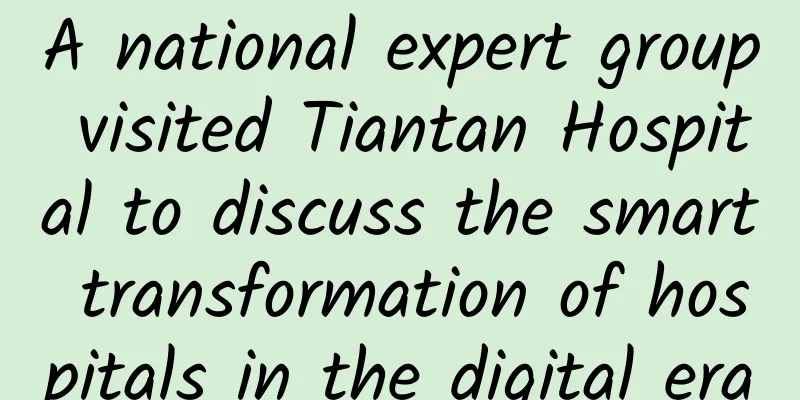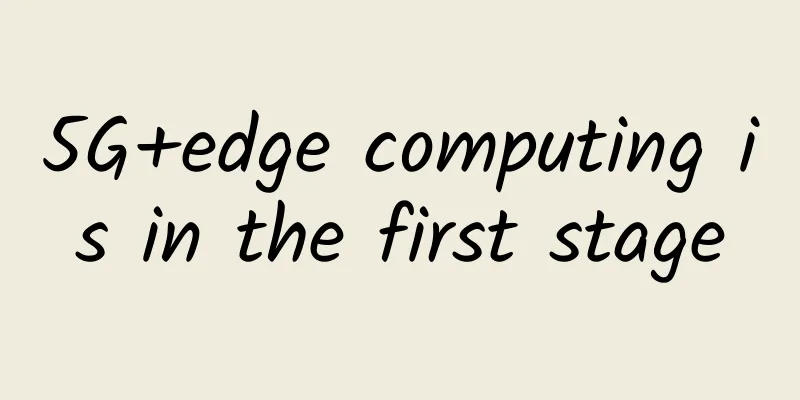A national expert group visited Tiantan Hospital to discuss the smart transformation of hospitals in the digital era

|
On August 27, the "Entering Tiantan - Smart Hospital Summit Forum" was held in Beijing, hosted by China Hospital Magazine and co-organized by the Information Professional Committee of the Chinese Hospital Association and H3C Group under Tsinghua Unigroup. Information experts from the National Health Commission, the Chinese Hospital Association and domestic authoritative medical institutions gathered at Beijing Tiantan Hospital affiliated to Capital Medical University to share the outstanding achievements and practical management experience of digital technology in reshaping hospital informatization and improving medical quality, and explore realistic paths for in-depth advancement of smart hospital construction.
Digital technology reconstructs modern hospitals and creates a smart experience for seeking medical advice Liu Qian, president of the Chinese Hospital Association, said in his speech that driven by national policies and digital innovation, a smart medical system based on universal health informationization and health and medical big data is accelerating its formation. At present, my country's medical informationization has made great progress and has played a huge role in optimizing the medical process, improving service efficiency, and improving patient experience. The recent online sale of prescription drugs is a powerful example. President Wang Yongjun of Beijing Tiantan Hospital extended a warm welcome to the experts attending the meeting and introduced the forward-looking insights and unique ideas of Tiantan Hospital on the construction of medical information technology. He said that taking the relocation of the new hospital as an opportunity, Tiantan Hospital established eight key points and ten innovative points in the planning of smart hospitals. Through information technology, the hospital has realized the intelligent transformation of the entire process from appointment registration to medical consultation, and has become a digital, intelligent, modern new hospital. H3C has been ranked first in the medical information industry for nine consecutive years, and has shouldered the important tasks of innovation, exploration and demonstration in helping my country's smart hospitals to steadily advance. Wang Jingpo, co-president of H3C Group, shared on the spot that H3C, based on smart hospitals, integrates digital infrastructure, business capability platform, active security, and intelligent digital platforms with unified operation and maintenance, combines innovative smart applications with ecological partners, builds a medical digital brain, and comprehensively promotes the informatization process at different levels in the field of medical health, including clinical, service and operation. Wang Yi, Director of the Medical Administration and Management Bureau of the National Health Commission, gave a keynote speech on the topic of "Promoting Hospital Informatization Construction with Management Innovation" at the meeting. He pointed out that my country's medical services are moving from "informatization" to "intelligence". In this process, medical institutions at all levels need to clarify the goals of smart upgrades and use digital means to achieve internal and external interconnection and resource sharing, thereby improving the ability to allocate medical resources and realizing a smart operation model that integrates management decision-making, clinical diagnosis and treatment, and service systems. Hospital experts discuss and explore the latest progress in hospital transformation Taking the medical information construction of Peking University Third Hospital as an example, Jin Changxiao, Party Secretary of Peking University Third Hospital, shared his experience in the information construction of smart hospitals. Peking University Third Hospital uses a lightweight model to create full-process online services and digital closed-loop management, and also launches Internet + medical consulting services, which truly links "online and offline" and "inside and outside the hospital" information interaction and sharing, effectively solving the pain point of patients' "hard work and difficulty" in seeing a doctor, reducing the diagnosis and treatment burden of medical staff, and improving the efficiency of hospital operation and management. Xing Mo, deputy director of Peking University Cancer Hospital, delivered a speech on the theme of "Promoting multidisciplinary collaboration and promoting standardized tumor treatment". She pointed out that in the process of digital construction, it is necessary to fully mobilize the enthusiasm of all parties to participate, and the high attention and active promotion from the management to the various departments have provided beneficial support for the pilot work of multidisciplinary collaboration (MDT) diagnosis and treatment of tumors. The collaborative cooperation of different departments has greatly improved the effectiveness of MDT diagnosis and treatment. Li Jia, deputy secretary of the Party Committee of Xuanwu Hospital of Capital Medical University, shared how to improve medical quality through informatization. He pointed out that smart hospitals are for process reengineering under informatization conditions, rather than informatization of old processes. In the process of building smart hospitals, it is necessary to fully collect the effective needs of each part and comprehensively consider the intelligent reshaping of the overall process. Xuanwu Hospital effectively improves the compliance and standardization of medical staff, especially junior doctors, through medical AI, and conducts procedural inspections and real-time reminders on doctors' subjective behaviors, thereby improving medical quality. During the roundtable discussion, Wang Caiyou, Chairman of the Information Committee of the Chinese Hospital Association (CHIMA), Sun Xiaowei, Deputy Secretary of the Party Committee of Peking University First Hospital, Wang Lei, Deputy Director of Xi'an Children's Hospital, and Du Xiaojun, Technical Director of the Medical System Department of H3C Group, had a more in-depth discussion on how to fully mobilize the sense of honor and gain of various departments in the hospital, so as to fully participate in the information construction and form a wise synergy. Tiantan Hospital & Fully Integrated Solutions, Building a Smart Hospital at Your Fingertips Bai Bo, deputy director of the Information Center of Beijing Tiantan Hospital, shared the situation of the construction of the smart hospital of Tiantan Hospital on the spot. He said that the construction of a smart hospital is the main goal of the information development of Tiantan Hospital. The intelligent network and IT platform built by H3C provide reliable guarantee for the safe and stable operation of the hospital information system, helping Tiantan Hospital to realize the intelligence of the whole process from appointment registration to medical consultation. After the meeting, the experts visited the computer room, outpatient department and inpatient department of Tiantan Hospital. The smart guide machine, the smart outpatient department with full self-service, and the smart ward with smart facilities such as bedside pad, smart mattress, smart infusion, and baby anti-theft were all highly praised by the experts. The daily average of 8,900+ outpatient visits but no long queues on site further demonstrated the upgraded medical experience brought about by the intelligent transformation. After the visit to Tiantan Hospital, a tour to Tsinghua Unigroup fully demonstrated to the participating expert group the cutting-edge progress in the development of medical informationization and smart medical care, as well as H3C's leading strength and industry experience in promoting the digital transformation of the medical industry. Digital innovation provides opportunities for change in hospital management, service remodeling, and optimization and upgrading of diagnosis and treatment results. As a leader in digital solutions, H3C will continue to provide more valuable digital support for the intelligent transformation of the medical industry and the construction of a healthy China through continuous innovation of smart medical solutions and cooperation with industry partners across the value chain. |
<<: Solutions for 5G Network Security Threats
>>: Three major challenges faced by enterprise infrastructure modernization
Recommend
Huawei: Building a smart city nervous system to help cities transform digitally
On December 20, the 8th China Internet of Things ...
How to build the “dual gigabit” expressway in 2021?
[[374332]] At the 2021 National Industrial and In...
10,000-word article on DNS protocol!
[[376851]] Consider this question: how many ways ...
Domain name www, to have or not to have, that is the question
Historical background Although people often confu...
I am confused. If I want to store IP addresses, what data type is better?
When it comes to IP addresses (IPv4), common IP a...
PacificRack: Unlimited KVM in Los Angeles starting at $1.50 a month or $15 a year
PacificRack has launched new products. The word &...
How to reduce the incidence of human error in data centers
Data center companies often encounter hardware an...
Wi-Fi encryption is useless. Is it not important to have no money, so just "run naked"?
Yes, you read that right. With the exposure of th...
Eurocloud newly launched AS9929 line high defense in Los Angeles Cera data center with 50% discount starting from $2.5/month
At the end of last month, OULUCLOUD launched a ne...
Learn the history of HTTP in 6 minutes
[[386748]] HTTP/0.9HTTP/0.9 was proposed in 1991 ...
Why is it so difficult for operators? How can it not be difficult when they are faced with difficulties along the way?
[[353944]] This article is reprinted from the WeC...
Simple and clear, the most powerful introductory 5G science popularization ever!
[[253735]] A simple and magical formula Today'...
4 ways 5G will change our lives
5G technology is being rolled out in many countri...
What is the use of "5G+AI"? This comic tells you the answer...
[[425909]] This article is reprinted from the WeC...
In order to promote 5G packages, operators are also trying their best
Whether on the Internet or in the real world, the...



![[Black Friday] VIRPUS SSD VPS 70% off, Seattle VPS monthly payment 1.5 US dollars and annual payment starting from 15 US dollars](/upload/images/67cac21c05b84.webp)





